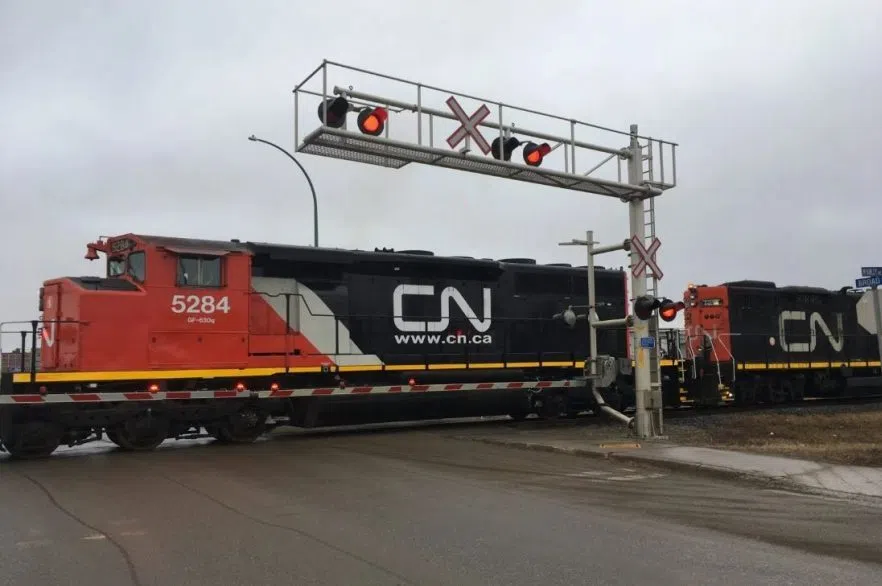The ongoing rail strike continues to cause problems for people and businesses in Saskatchewan.
Weyburn-area farmer and board chair for the Sask. Wheat Development Commission Jake Leguee said he is extremely concerned about the strike.
“This doesn’t just affect farmers, this affects everyone in Canada,” Leguee said. “It causes higher prices for everything because it’s harder to get products into and out of this country. We’re an export-dependent nation. If the railways don’t function, our economy doesn’t function.”
He was optimistic that the strike would come to a close when the federal government evoked section 107 of the Canada Labour Code, sending both parties into arbitration.
That optimism didn’t last long when the Teamsters Union went back on strike.
“To hear that the unions were going to challenge the use of binding arbitration by the federal government it was just really disappointing and frustrating,” Leguee said.
“As individual farmers, we feel very powerless to do anything about this. It’s just going to cost us money and make it more difficult to manage our cash flow on our farms.”
READ MORE:
- Labour lawyer shares perspective on rail strike, and what lies ahead
Sask. could lose hundreds of millions if rail strike happens - ‘We don’t want to be here’: Sask. CPKC workers frustrated by rail lockout
He said these delays have a negative impact on how Canada appears as a global trade partner.
“For me as a farmer, knowing that most of my products are shipped halfway around the world and those customers that buy assume that that product is going to show up when they expect it to,” Leguee said.
“When things like this come up, it reminds them that Canada is not a reliable shipper. As the second largest country in the world … that’s just not acceptable.”
Leguee said that for every day trains remain at a halt, it takes an average of seven days to catch up. This will gravely impact harvest.
“As we’re rolling, we’re putting the crops in the bins,” he said. “We’re talking to our buyers about contacts we made ahead of time to sell some of that crop off the combine. It helps us manage our storage. We need some of that to go. If it can’t go, what that means is we’re going to have to find ways to temporarily store it.”
This causes further complications and a lot of additional costs. This makes Leguee worried that some farmers will miss crucial payments.
“Unfortunately, there’s very little that we as individual farmers can do,” he said. “The reality is the banks typically don’t care why you can’t make your payments, they just expect to get paid. And we have no ability to try to get that money any other way. We have to be able to deliver on those contracts.”
He encourages farmers to advocate through social media and speak with their local MPs about the importance of getting this issue solved as quickly as possible.
“Yesterday isn’t fast enough,” Leguee said.
Bill Prybylski, a vice president with the Agricultural Producers Association of Saskatchewan (APAS) said there is a unified sense of relief among farmers that the matter has been sent to binding arbitration.
Prybylski credits the federal government stepping in when they did but also said the rail dispute still hurts Canada.
“There’s been like six instances in the last nine years where there’s been a disruption in the grain supply chain,” Prybylski said. “Every time that happens it’s hurt our reputation as a reliable source.”
— with files from 650 CKOM’s Will Mandzuk
READ MORE:











